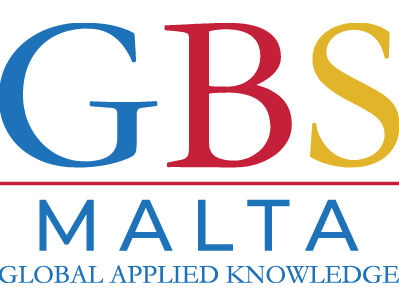You can search for part-time job openings through networking with fellow students and attending job fairs.
Why is financial planning for students pursuing a master's in Malta important?

When you start studying for a master's degree, it's a big step towards your career. It also means you must invest a lot of money. Understanding budgeting and financial planning for students is important because:
- With better budgeting, you can focus on your studies without worrying about money.
- In Malta, there are many fun things to do, but you have to be smart with your money to enjoy them.
By understanding financial planning for students, you can spend better. Knowing where your money is coming from, you can find a good balance between your studies and having a good time.
This will help you have a great experience as a student without worrying about your finances. Whether paying for a place to live, buying textbooks, or exploring the island, having a budget will help you make good choices with your money and stay on track to reach your academic goals.
Discover smart financial planning
Practical tips for financial planning for students during Master’s
As a master's student in Malta, financial planning for students is important to manage money wisely. You must plan and be resourceful to handle tuition fees, housing and daily expenses. Here are some practical tips to help your financial planning as a student in Malta:
- Make a budget: Create a plan that shows how much money you'll need for things like tuition, housing, food, transportation and fun activities. This helps you to control your spending better.
- Look for scholarships: Explore opportunities to get financial help with your tuition fees. Many universities, as well as government and private organisations, offer scholarships. Check the requirements and deadlines to increase your chances of getting one.
- Consider part-time work: Get a job that fits your studies. Look for internships or flexible jobs related to what you're studying through networking. This helps you earn money and gain valuable experience.
- Find student discounts: Many local businesses offer discounts to students. Take advantage of these deals to save money on meals and entertainment. Malta has free public transport for students Monday to Sunday 24/7 (applicable for any student staying in Malta for more than 90 days).
- Prioritise your spending: Be mindful of what you need and can live without. Focus on essential expenses like rent and utilities first, then decide if you have money left for extras like eating out or attending events. Do not miss on time management as a student!
- Consider shared housing: Sharing a living space with others can reduce your rent and give you a sense of community as a student. Look for options like shared apartments or dormitories to save money on housing.
- Seek support: Stay informed about financial aid programmes and counselling services available to students. If you need help managing your finances, contact university advisors or financial aid offices for help and guidance.
By following these tips on financial planning for students, you can have a great time and experience in Malta.
Studying master's programme at GBS Malta

At GBS Malta, we offer master's courses that are industry-focused to help students succeed in their chosen fields. We combine theoretical knowledge with practical insights, so students graduate with the skills and confidence needed to do well in the competitive job market.
Our campus has modern facilities and a supportive environment to help students become the business leaders and innovators of the future. Our master's programmes are designed to meet industry trends and demands, giving students the relevant skills and expertise needed for their careers.
We offer networking opportunities with peers and professionals, hands-on projects and internships so students can have a complete learning experience. With a diverse student community, great facilities and experienced teachers, GBS Malta is the perfect place for students to pursue their master's degree and achieve their career goals.
Six Reasons to join GBS Malta:
- MFHEA approved and permitted
- Get qualified scheme
- Global academic progression
- British qualification for academic success
- Bath spa university partner
- Global footprints
Here's more to what you gain by joining GBS Malta:
| USP | Details |
| British Qualification for Academic Success | Succeed with a world-class education that challenges you to reach your full potential. |
| Approved by MFHEA board | We support their ideology of ‘Quality education for confident futures.’ |
| Malta Get Qualified Scheme | Get eligible for a 70% grant on your tuition fees after completion of your graduation. |
| Affordable Accommodation | Accessible and fully equipped accommodation options for our international students |
| 50% Scholarship for MBA courses | 50% scholarship for MBA programmes |
| Study + Work | Study & Work – students can work in Malta for a total of 20 hrs per week |
Lastly, financial planning for students is important when pursuing master's course. Remember that spending on your education is also an investment in your future success. If you plan smartly and take control of your money, you can have a great experience doing your master's in Malta and set the stage for a successful career in your chosen field. Enrol Now!
Frequently asked questions about financial planning for students
1. How can I find part-time work opportunities in Malta?
2. Are there any government scholarships available for master's students in Malta?
There are many government scholarships and grants. Visit the Ministry for Education and Employment website for information on eligibility criteria and application procedures.
3. Can I work full-time while studying for my master's degree?
Non-EU/EEA students can work for 20 hours of part-time work per week. However, with the necessary permits and approvals, you can work full-time during scheduled breaks, such as summer holidays.
4. How can I save money on accommodation expenses in Malta?
Consider sharing accommodation with other students. Compare rental prices in different areas and negotiate with landlords for affordable housing options.
5. Are there any student discounts available in Malta?
Yes, with a valid student ID, you can enjoy discounts from some businesses. These discounts are applicable on restaurants, cafes, cinemas, public transportation and leisure activities, allowing you to enjoy various services and amenities.

